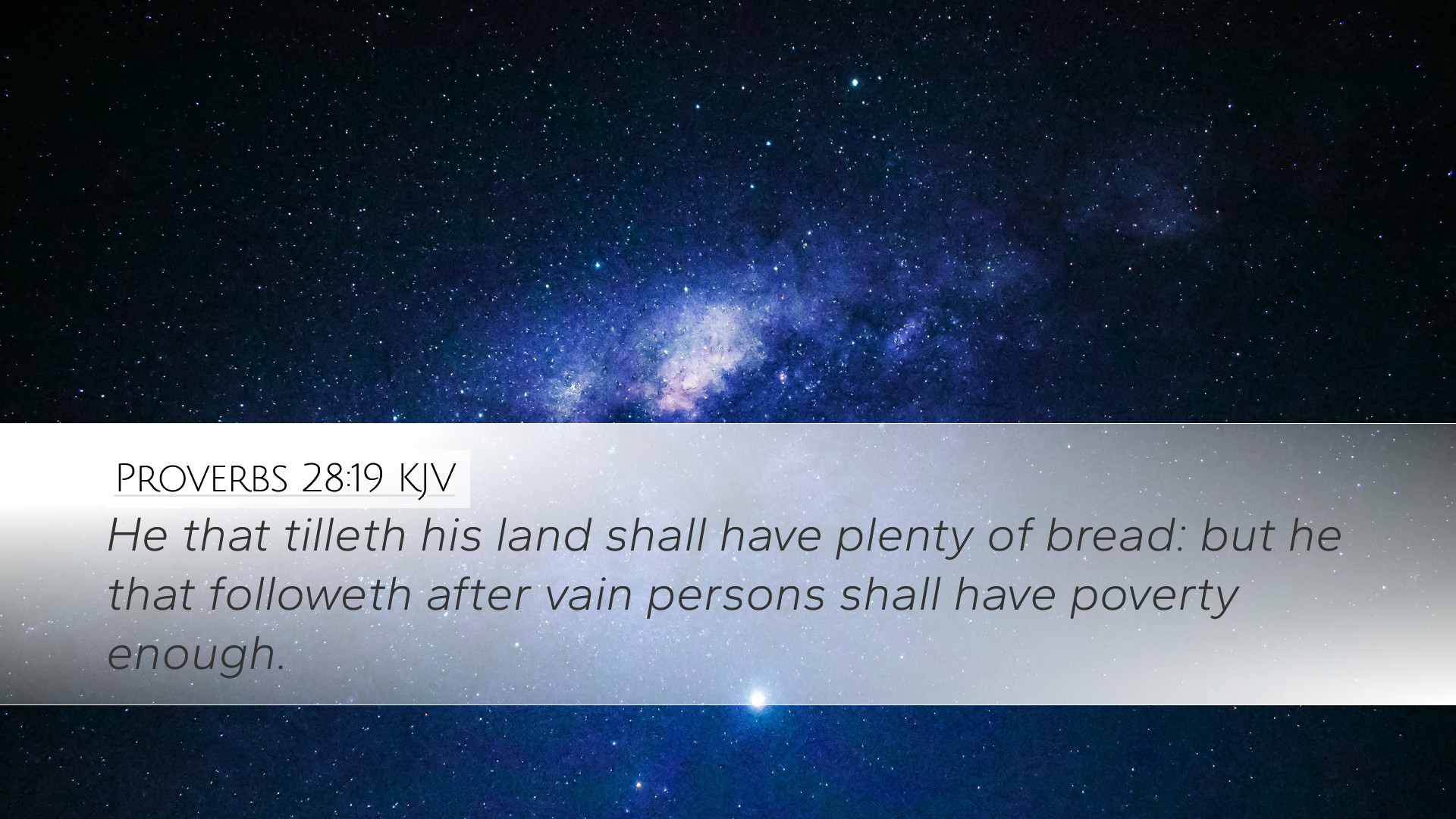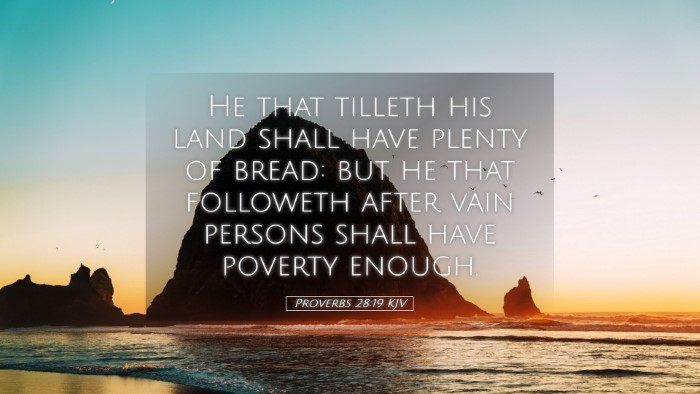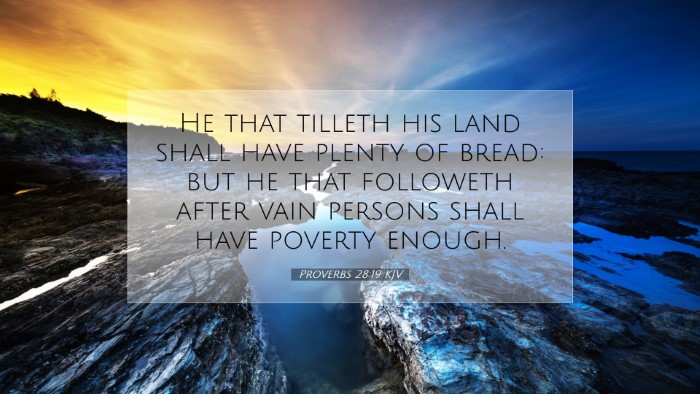Commentary on Proverbs 28:19
Proverbs 28:19 states: "He who tills his land will have plenty of bread, but he who follows worthless pursuits will have poverty enough."
Overview
This verse highlights the principle of diligent labor contrasted with the folly of pursuing empty ambitions. It reflects the biblical teaching that hard work leads to tangible results, while a lazy or misguided pursuit leads to scarcity. From the outset, we see the practical implications of one's choices in relation to personal responsibility and reliance upon God's providence.
Insights from Matthew Henry
Matthew Henry emphasizes the importance of industriousness and its divine approval. He argues that hard work is a calling and a duty for believers.
- Industrious Nature: Henry notes that “tilling the land” symbolizes diligence in one’s work. He suggests that diligent labor is not merely a means to an end but a way to honor God through stewardship of the resources He has provided.
- Contrast with Futility: The second part of the verse serves as a warning. Pursuing “worthless pursuits” can lead one away from God’s intended purpose, leading to spiritual and physical poverty.
- Divine Providence: Henry infers that God’s blessing rests upon the diligent worker, ensuring that their efforts lead to sustenance. He posits that this reflects a broader theology of work where faithfulness in labor is rewarded.
Insights from Albert Barnes
Albert Barnes offers a practical exposition, identifying how the verse applies to both spiritual and material aspects of life. He suggests that this proverb applies universally across various contexts of human endeavor.
- Principle of Harvest: Barnes elaborates on the agricultural imagery, arguing that just as a farmer must work the fields to reap a harvest, so too must individuals invest effort in any endeavor they pursue.
- Empty Ambitions: He warns against distractions that divert people from productive work. The term “worthless pursuits” encompasses a myriad of worldly temptations that promise rewards but yield disappointment.
- Spiritual Application: Barnes expands this to spiritual diligence, urging believers to cultivate their faith diligently. Spiritual lethargy can lead to a barren spiritual life and the consequences of neglecting one's relationship with God.
Insights from Adam Clarke
Adam Clarke provides a detailed historical and cultural context to enhance understanding. His commentary reveals how ancient agrarian societies viewed labor and its fruits.
- Contextual Understanding: Clarke points out that in ancient Israel, land was a primary source of wealth and sustenance. Tilling the land was not just a vocation but a means of survival, making the principle especially relevant.
- Character Formation: Clarke speaks to the moral implications of hard work and idleness. He notes that diligence fosters virtues such as discipline and perseverance, while vain pursuits lead to moral decline and loss of purpose.
- God’s Design: He reiterates that there is a divine order to work; when individuals live within that design—through hard work and divine reliance—their lives are enriched.
Practical Applications for Today
For pastors, students, theologians, and Bible scholars, Proverbs 28:19 serves as a pragmatic reminder of the principles of diligence and the futility of pursuits that lack substance. Here are several applications:
- Encouragement of Diligence: Pastors should encourage congregants to cultivate their spiritual gifts and work hard in their vocations as a reflection of their faith.
- Discernment of Pursuits: Students and scholars must evaluate their educational and social pursuits to ensure they are fruitful and aligned with God’s calling on their lives.
- Emphasis on Stewardship: The broader theme of stewardship can be applied to environmental awareness, advocating for responsible management of resources in both personal and communal contexts.
- Teaching on Contentment: Teaching about the dangers of envy and ambition for success can derive from this verse, guiding individuals toward a life defined by purpose rather than temporary gain.
Conclusion
Proverbs 28:19 is a rich and multifaceted verse that invokes a strong message about the value of hard work and the perils of pursuing meaningless pleasures. Through the insights of Matthew Henry, Albert Barnes, and Adam Clarke, we recognize the timeless truth that our diligence, anchored in faith, not only provides for our needs but also aligns us with God’s overarching purpose for creation. It serves as a reminder that embracing our responsibilities with God-centered diligence will yield blessings both in our earthly lives and in our spiritual journeys.


